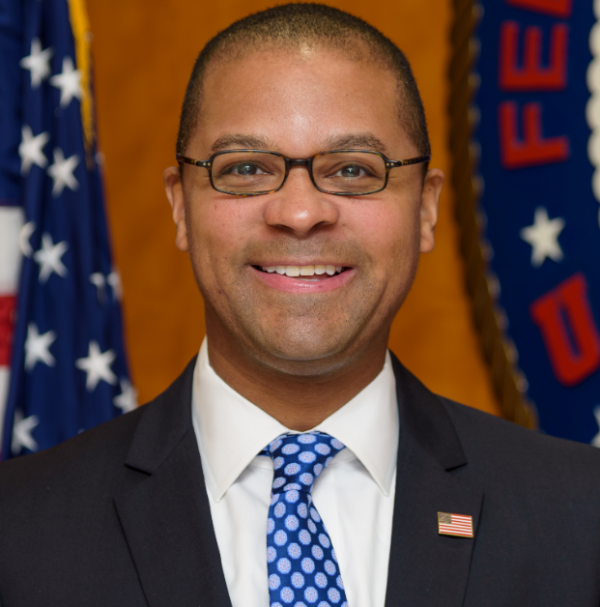FCC's Starks: Hill Will Need to Find Funds for Suspect-Tech Rip and Retrofit

The smarter way to stay on top of broadcasting and cable industry. Sign up below
You are now subscribed
Your newsletter sign-up was successful
FCC commissioner Geoffrey Starks said Congress is likely going to have to step in to help manage and fund removal of all suspect tech from U.S. networks, which is likely the end goal of any effort to secure those networks from threats foreign and domestic.
That is according to the commissioner's prepared remarks for a keynote at the Competitive Carriers Association annual convention in Providence, R.I. He was definitely preaching to the choir when it came to funding such a potentially massive retrofit.
CCA members, who are smaller wireless carriers competing with the former Baby Bells, have been concerned about how they are going to get that suspect tech--like that of Chinese telecom Huawei--out of their systems given the expense, tech that they invested in in part because it was less expensive.
"Carriers told me that they are worried about being labeled as security threats, particularly when they acted legally and in good faith," he said. "That’s why the Commission needs to consider a mix of incentives and regulatory action to identify where this equipment lies. In the short term, we could provide financial incentives for carriers to self-identify, but our national security may ultimately require us to direct carriers and manufacturers themselves to disclose this information."
Starks said one big challenge is whether there needs to be a "rip and replace" policy given the potential national security threat of suspect tech, or whether some can be quarantined. While he said he is open to considering the latter if feasible, the long-term solution is likely "the complete removal of all equipment from suspect manufacturers."
Starks has proposed his own “Find it, Fix it, Fund it" program to address the issue.
As to the funding portion of that program: "I believe this problem will ultimately require congressional action," he said, and explained why. "A 'rip and replace' program could cost anywhere from hundreds of millions to over a billion dollars [according to panelists at the CCA convention]. These costs also depend on the speed of any program – if we stretch out the timeline for replacement of the insecure equipment, we could save millions as equipment simply ages out of service. We must weigh this potential savings, however, against the possible risk to our national security while this equipment remains in place.... The entire federal government needs to work together as a team to see that this gets done and gets done right."
The smarter way to stay on top of broadcasting and cable industry. Sign up below
Contributing editor John Eggerton has been an editor and/or writer on media regulation, legislation and policy for over four decades, including covering the FCC, FTC, Congress, the major media trade associations, and the federal courts. In addition to Multichannel News and Broadcasting + Cable, his work has appeared in Radio World, TV Technology, TV Fax, This Week in Consumer Electronics, Variety and the Encyclopedia Britannica.

